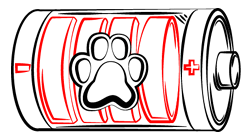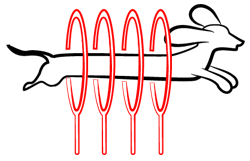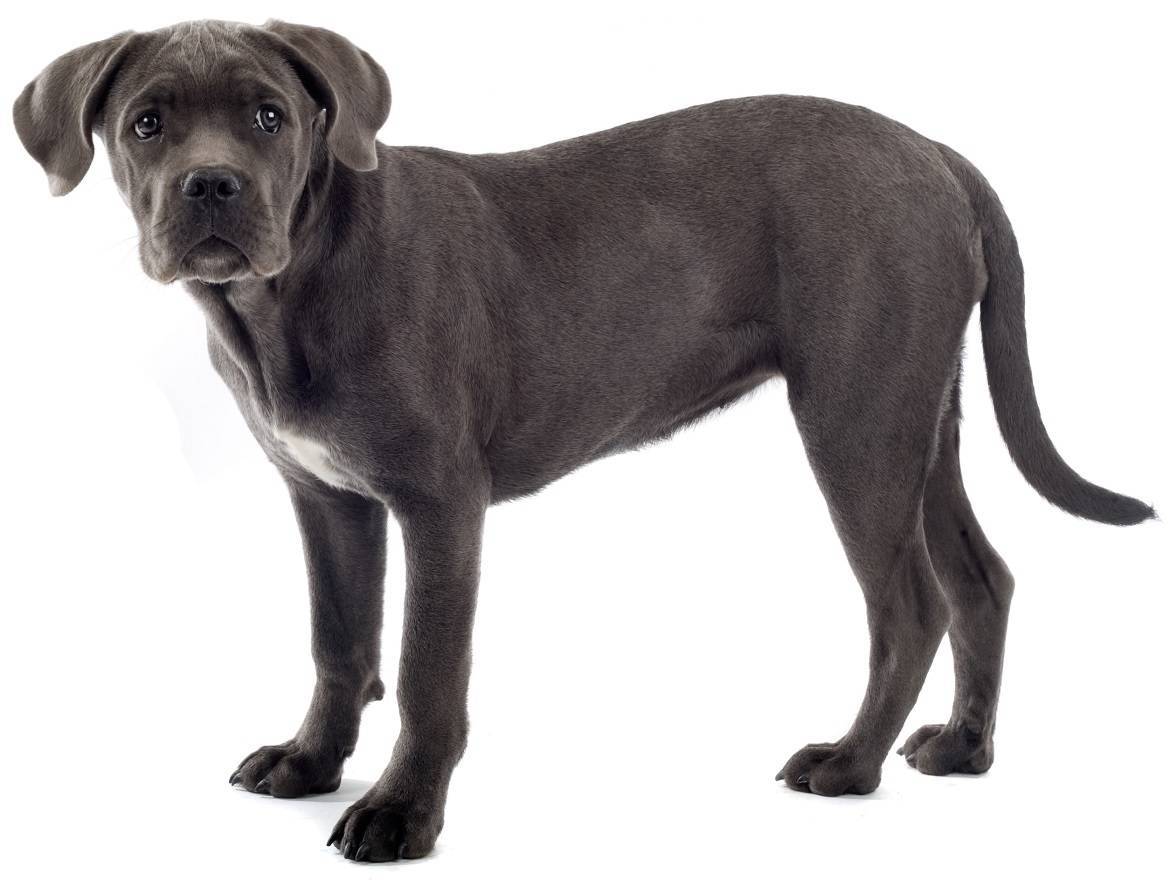
Paws ‘N’ Pups Quickview
Size
| Energy Level
| Trainability
| Paws ‘N’ Pups Rank
|
Characteristics
| Physical Characteristics: Height: 23-28” Weight: 85-110 lbs. Energy Level: Moderate – High | The American Kennel Club recognizes the Cane Corso in the following colors:
|
| Health & Longevity: 10-12 years Breeders screen for the following conditions:
Like many large, deep chested breeds, Canes are susceptible to gastric torsion (bloat), a life-threatening situation if immediate veterinary intervention is not sought. During periods of growth, some Canes experience Panosteitis, commonly referred to as “growing pains”. It is usually self-limited but the discomfort produced can range from mild to severe. Demodectic mange is seen as well, and is considered an autoimmune disorder. | |
Temperament & Train-ability
Bred to guard property and hunt big game like wild boar, this powerful and athletic dog requires an experienced owner with a large, very secure yard. Corsos are not suited to apartments, condos, or small yards. Nor will they do well with novice dog owners, those who are not home much, young families or those whose lifestyle involves a lot of people coming and going. Having been bred as a guard dog, Canes are naturally suspicious of strangers and potentially aggressive to humans, particularly if poorly bred or raised without proper socialization and training. As hunters, they are often aggressive to other animals. While they may do ok with other animals if raised with them, remember they were bred to hunt, and even though they may not have been used for hunting in generations, those behaviors do not disappear from non-use. Canes are likely to view strange animals as prey and do their level best to kill them. This includes other dogs.
Corsos have high exercise needs compared to other mastiff type breeds. They are also much more athletic and agile than other mastiffs. A very secure yard is necessary, as a Cane Corso running at large is likely to get himself into trouble.
This is not the breed for spending long periods alone in a yard. Without a job to channel the Cane’s many drives, bad behaviors quickly set in; running the fence menacing all who pass, destructive behavior, digging massive holes, potentially escaping to run at large, and aggression are some behaviors one can expect from a Corso left to their own devices. They require enormous dedication, time and energy to properly socialize and train a young, exuberant, very large dog. Once they are raised, the commitment of time and energy continues, as they must have a job and be managed every day.
Corsos can be susceptible to some breed specific legislation and discrimination, and many insurance companies require extra liability insurance for homeowners who have one. Impeccable breeding is a must in this breed; they should be reserved but not shy, protective but not aggressive. Cane Corso puppies should be friendly and trusting. The aloofness in the breed develops as they mature. A fearful or aggressive puppy should be avoided at all costs. A naturally protective breed, when fearful, can become over protective and a liability. Corsos are known for noises such as snoring, snorting, grunting, as well as copious slobber and drool. Their fans, however, are willing to live with all of that in order to share their lives with this imposing watchdog.
Cane Corsos are intelligent, which means they learn things easily. This applies to everything, not just what you teach them. Their minds must be kept busy or they will find things to do that will not be fun for you. Training methods should not be heavy handed; if you make it about strength, you’ll come out on the losing end. Be calm, quiet, self assured and unwavering rather than blustery. He will test you, perhaps every day, to see if the rules still apply to him and if you are still going to follow through. Positive reinforcement methods will show him that it is in his best interest to do as you ask.
You will want to teach husbandry behaviors like getting into a tub, having feet handled, cleaning ears etc. so that you have your Corso’s cooperation for these necessary tasks; you won’t be able to outmuscle him. The job you provide for your Cane can be many things: herding livestock, obedience, even doing tricks will keep him exercised and his mind occupied. Every day, your Cane Corso will need a minimum of 20-30 minutes of mental stimulation; training, working puzzles, etc.
Grooming
Sporting an easy-care short coat, Cane Corso are moderate shedders. The amount of coat being dropped will increase significantly during spring and fall. Their short coat is easy to keep clean. Ears must be cleaned regularly, and toenails may need to be trimmed; even if your Cane is walked on concrete, toenail trimming should be part of your regular grooming routine to keep your dog used to having their feet handled. Teeth should also be checked and cleaned as necessary.
Diet
The amount of food a Cane will require can vary depending on age, activity level, and type of food fed. On average, Corsos will eat 4-5 cups of food daily, which should be fed in two meals; free feeding should be avoided to keep your Cane at a healthy weight. A high quality food should be fed, and one formulated for giant breeds is recommended. Your Corso may experience some degree of gas. Many Canes are prone to overeating and weight gain, which should be avoided by carefully monitoring food intake. Because of their susceptibility to bloat, food intake should be managed carefully. A constant supply of fresh, clean water must always be available.
Looking for a Cane Corso?
 Find A Cane Corso Breeder |  Cane Corso Puppies For Sale |  Adopt A Cane Corso |
Cost
Corsos typically run between $1,500 up to $4,000. Adopting a rescue dog is an option many prefer, in order to give a home to a dog that lost his. Whether you acquire a dog from a breeder or rescue, do your homework to be assured that the temperaments of the dogs are tested and sound.
Ongoing expenditures include the typical supplies, food, and regular vet visits. Additionally, you may need to invest in an extra supply of chew and food-dispensing toys as well as training classes to keep your busy Cane occupied and healthy. Remember, too, everything costs more with a large dog; beds, the amount of food needed, as well as veterinary procedures. Don’t forget to consider whether your automobile can safely accommodate an adult Cane Corso.
Paws ‘N’ Pups Ranking
Paws ‘N’ Pups ranks every breed out of 4 with 1 being easiest to integrate into your life and 4 being the toughest – The lower the ranking the better.
Ranking takes into account a few basic factors such as cost, skill level needed, high vs low maintenance, and how critical regular training is to success. The Cane Corso rates a 4; cost, skill and amount of time and energy required to raise and live with a Corso make them a challenging breed.
Breeds Similar To Cane Corso
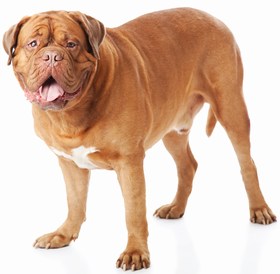 Dogue De Bordeaux | 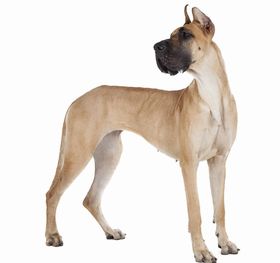 Great Dane | 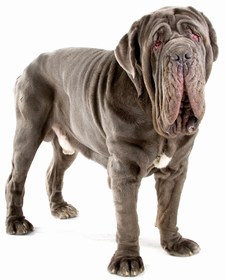 Neapolitan Mastiff | 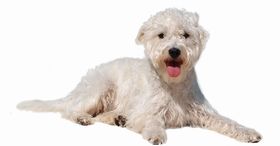 Anatolian Shepherd Dog |


